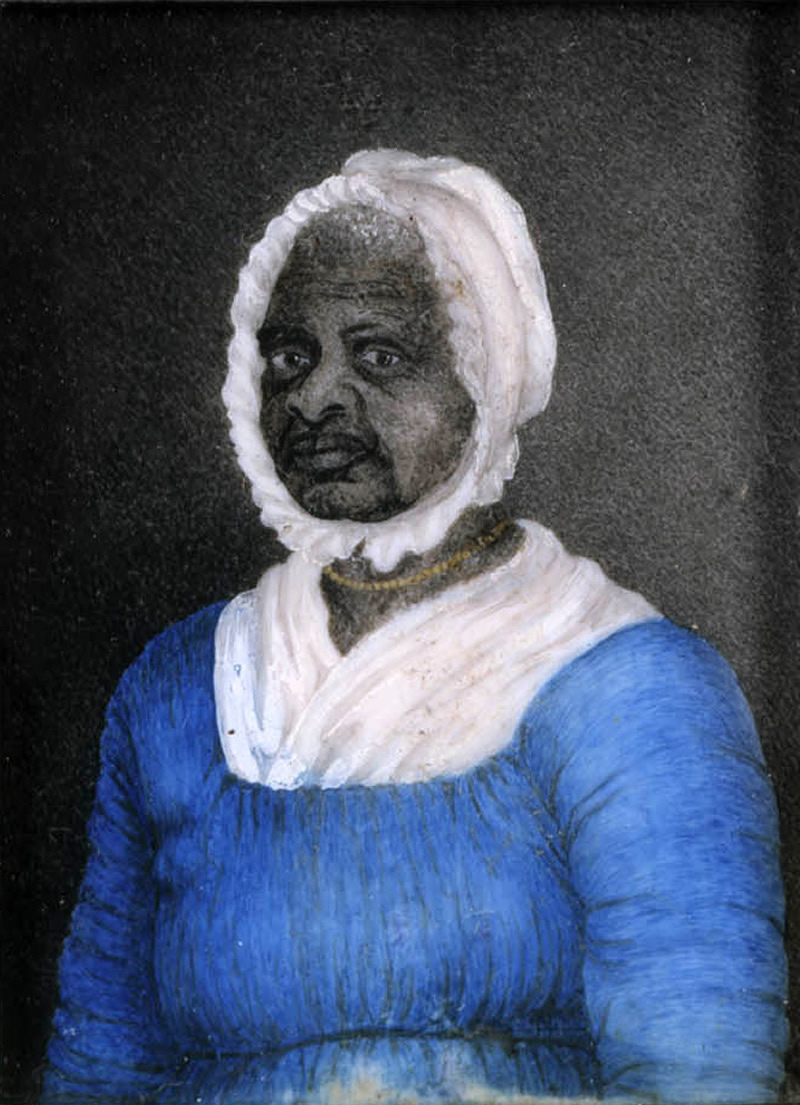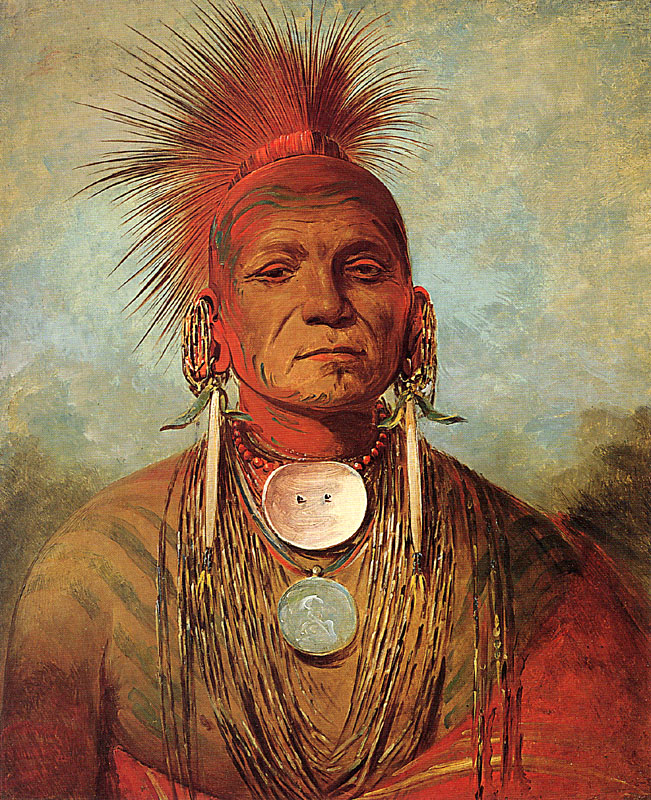The following article will appear next month in the Winter 2021-22 issue of the Journal for Cultural and Religious Theory. It is published in three installments.
As a demonic island, black studies lifts the fog that shrouds the laws of comparison, particularity, and exception to reveal an aquatic outlook ‘far away from the continent of man.’
–Alexander Weheliye, “After Man” (citation from Walter Benjamin)
In recent years, the vast and expansive oeuvre of Caribbean cultural critic Sylvia Wynter has received enthusiastic response from a seemingly ever-increasing group of scholars. Profoundly transdisciplinary, her work has been engaged to think in and across fields and disciplines as diverse as post- and decolonial studies, Black studies, Caribbean critical theory, literary studies, curriculum studies, posthumanism and, increasingly, religious studies and theology.
Drawing from and contributing to this great interest in Wynter’s writings, this essay seeks to further elucidate and build upon an often-referenced concept in her work: “demonic ground.”[1] Despite Wynter’s use of the terrestrial term “ground,” I argue that the concept is fundamentally oceanic; I then build on this insight to coin “demonic ocean” as an alternative vantage point of Black study.
Wynter introduces “demonic ground” in her well-known and controversial essay “Beyond Miranda’s Meanings: Un/Silencing the ‘Demonic Ground’ of Caliban’s ‘Woman,’” which served as the After/Word for Out of the Kumbla: Caribbean Women and Literature. Published in 1990, this edited volume offered one of the first comprehensive accounts of writings by Caribbean women and sought to open up a conversation about a specific “Caribbean feminist theoretical position.”[2] Here’s Wynter, in a characteristically long sentence, packed with meaning and implication:
I want to argue in this After/Word, from its projected “demonic ground” outside of our present governing system of meaning, or theory/ontology in [A.T.] de Nicolas’ sense of the word that is precisely the variable ‘race’ which imposes upon these essays the contradictory dualism by which the writers both work within the “regime of truth” of the discourse of feminism, at the same time as they make use of this still essentially Western discourse to point towards the epochal threshold of a new post-modern and post-Western mode of cognitive inquiry; one which goes beyond the limits of our present “human sciences,” to constitute itself as a new science of human life.[3]
It will take the space of this essay to fully explicate this passage; for now, three things are noteworthy. First, Wynter conceived her essay as written from the “demonic ground.” Two, this “demonic ground” exists outside of the hegemonic, structuring episteme. Three, she arrives at this outsider position by building on but also moving beyond the “Caribbean feminist theoretical position” outlined in the essays that she reflects on. While I will explicate the term over the course of the essay, we may therefore define “demonic ground,” for now, as the “position of the unthought” and the locale of and for radical epistemic innovation.[4]
Why does Wynter use the term “demonic” to denote such a vantage point? Counterintuitively, she does not borrow the phrase directly from (Christian) theology; rather, she turns to scientific texts, where the demon, as Jimena Canales shows in her book Bedeviled (2020), also has a long, storied presence.[5] Wynter writes that she borrowed the term from “physicists who seek to conceive of a vantage point outside the space-time orientation of the humuncular observer.”[6] I unpack this phrase below; for now, it suffices to note that this explanation is not accompanied by a specific reference. In fact, the precise source of inspiration remains—despite helpful and more recent clarifications by Katherine McKittrick and Sarah Haley[7]—unknown. This essay addresses this lacuna.
To start, I trace Wynter’s explicit reference to philosopher A.T. de Nicolas in the long quote above to a previously ignored or overlooked source for Wynter’s “demonic ground:” the writings of Alex Comfort (the essay that Wynter references is a review of one of Comfort’s books). Comfort is best known as author of the famous manual The Joy of Sex (1972). The idiosyncratic scientist and physician has, however, a transdisciplinary oeuvre that includes books on physics, philosophy, and religion. It is certainly possible that Wynter simply liked and borrowed the concept of the “demonic” and did not buy into (or even consider) Comfort’s larger epistemological argument.
However, tracing the concept back to Comfort encourages us to pay attention to the subaquatic traces embedded in the concept. After all, Comfort links the “demonic” not only to quantum physics, but also to what he consistently refers to as “oceanic experiences:” altered states of consciousness in which the boundary between self and other disappears. The second part of this essay follows these traces to Fred Moten’s oceanic “mysticism of the flesh.”[8] I understand Moten’s mysticism as an example of a “demonic model” that parallels those explored by Comfort but that, in line with Wynter’s “demonic ground,” offers a critique of and alternative to epistemologies that subjugate and oppress those racialized as Black.
Engaging Moten also allows me to inflect the largely metaphorical turn to the ocean in Comfort’s writings more materially: after all, he develops “mysticism of the flesh” through engagement with the Middle Passage. Bringing Moten and Wynter in conversation around the notion of the oceanic, I aim, in the third and last part, to develop the notion of “demonic ocean.” Thinking with Alexander Weheliye, whose writing serves as an epigraph to this essay, I will argue for and theorize “demonic ocean” as an offshore vantage point from which Black Study—in Ashon Crawley’s expansive sense of the word[9]—imagines anew.
Demonic Ground
Beginning with her 1984 essay “The Ceremony Must be Found,” Wynter has published a series of interlinked essays that sought to answer two ostensibly straightforward questions.[10] Why and how does the Du Boisian “color line”—which Wynter would recast as a differentiation between “Man” and “Human Other”—exist? And how can we imagine and develop modes of knowing that trouble, challenge, and ultimately transcend it? Wynter’s argument takes us back to medieval Europe.[11] Assuming Europe’s overwhelming cultural and epistemological dependency on Christianity, she identifies a series of epistemic shifts, or what she calls “cognitive breakthroughs,” that would gradually “free” human beings from the stronghold of supernatural explanations of the universe—free “us,” most importantly, from supernatural answers to the question of “the who, and the what we are.”[12]
For Wynter, the enslavement of the first Africans by the Portuguese in 1444, represents the first in a series of early modern changes that would cause what she would later call a “rupture” in the European social order and its conceptualizations of being human.[13] Subsequent ruptures include Copernicus’s 1453 discovery of the heliocentric model, which thoroughly reorders the relationship between human beings and the divine, the re-discovery of Plato by Marsilio Ficino (in 1474), Christopher Columbus’s so-called “discovery” of the Americas in 1492 and, finally, the Valladolid debate (from 1550-1) between humanist Juan Ginés Sepúvelda and theologian Bartholomé De Las Casas over the “proper” treatment of native Americans that would lead to chattel slavery. These changes catalysed a fundamentally racialized modernity.
For Wynter, however, they also forged an epistemological shift that made the guiding structuring principle of medieval European Christian theology—a “master code” of Redeemed Spirit/Fallen Flesh that hierarchically distinguished between clergy and laity—untenable.[14]
Importantly, Wynter also uses the term “demonic” when discussing this early modern context. She argues that the “lay intelligentsia” (which included Columbus), who were disempowered in relation to the church, used a “demonic model” to instigate the rupture.[15] She argues, too, that such disempowerment was “ontological:” the supposed inferiority of lay peoples legitimated and functioned as foundational structure to the power of the clergy. While the term “demonic ground” could be understood, in this particular instance, as connected to Christian theological discourse—to the extent that “lay intelligentsia” were potentially framed as demonic by the clergy in power—Wynter’s usage, as I noted above, is explicitly based in scientific demons.
Again, the term “demonic ground” identifies a locale of epistemological innovation, inhabited by those that hegemonic powers mark as somehow inferior “other” but that, precisely for this reason, are foundational to and structure hegemonic order. “Demonic ground” is the liminal space that is opened up by the persistent but ultimately always futile desire for pure and absolute difference.
However, and crucially, the early modern epistemological shift identified above did not change the structural logic that underlies how human beings go about formulating an answer to “the who, and the what we are.” Wynter argues that human behaviour is instituted in and through cosmogonies—“origin stories”—which include ways of meaning-making and behavioural schemas that groups of people live in and by. Such cosmogonies, in other words, ground and enforce a particular community with shared values and meanings—or what Wynter calls a “genre of being human.”[16]
These cosmogonies are structured around what Wynter calls a “master code.” Master codes name binary systems that, based on a set of interrelated distinctions, hierarchically differentiate human beings. As such, each cosmogony functions to produce boundaries: a “We/Us” over and against a “They/Not Us, a group that is “in” and a group that is “out.”[17] In the medieval scholasticism that forms the starting point of Wynter’s analysis, these distinctions included spirit/flesh, heaven/earth, habitable/uninhabitable. These codes are invented by human beings but supposedly instituted by an “extrahuman agency.”[18]
Humanly created “stories” and its attendant categories, differentiations and distinctions thereby transform into “codes” that function as “lawlike” in that they are deemed to be eternal, fixed, divine.[19] This twofold grammar of distinction and displacement is what constitutes, for Wynter, the “phenomenon of religion.”[20]
Indeed, the rational human subject—or “Man1”—that was invented in the wake of European colonialism, enslavement and expansion, remained supposedly mandated by an extrahuman agent: Nature, or more specifically, the divinely instituted Great Chain of Being, a hierarchical structure that ordered life from supposedly highest to lowest forms.[21] Importantly, not all human beings were thought to have equal access to reason, a property supposedly uniquely endowed to white Europeans. Black and indigenous peoples were thought to have limited or no access.
As such, Wynter writes, “race” became the “answer that the secularizing West would now give to the Heideggerian question as to the who, and the what we are.”[22] I highlight, once more, the constitutive nature embedded in this claim. It is not simply the case that racialized peoples were “excluded” from “Man” but, rather, that they were integral to its emergence and reign (and therefore, too, in a unique position to critique and think anew from the liminal position of the “demonic ground”). Those who were once invented as “Untrue Christian Other” now came to be understood as fundamentally other to the human project itself. As Christianity became increasingly more “secularized,” the meaning-making systems of Europe’s “others” were no longer cast as manifestations of a “false” religion, but as “evidence” of their supposedly “subhuman” nature.[23]
In the nineteenth century, another “cognitive breakthrough” took place, which Wynter grounds, symbolically, in the work of Charles Darwin and Thomas Malthus. Human nature came to be understood in fully biocentric terms—“Man2”—while the market economy took over from the political as the foundational order in and through which invented human differentiation was both legitimated and executed. As “Man2” is embodied by the white bourgeois, Black people were, once again, seen as the fundamental, ontological other to “Man2,” although Wynter is careful to note that the (neo)liberal market economy also pushes the “jobless,” “global poor” and LGBT folks to the margin.[24] Once again, this new order is thought to be natural and given, as it is believed to be instigated by yet another “extrahuman” agent: Evolution, capitalized by Wynter to highlight its structuring power.[25]
It is at this point that we return to the concept at hand, “demonic ground.” Wynter stresses that we remain locked in a cognitive model that hides the invented nature of the current dominating order and its constitutive categories and differentiations—i.e. the invented nature of antiblack white supremacy. At the same time, she identifies the need for a new “cognitive breakthrough” that parallels those that instituted “Man1” and “Man2” and thereby freed human cognition from the strongholds of Christianity.[26] She locates the beginnings of this new perspective in Fanon’s innovative work on race and consciousness in Black Skin/White Masks (1952). However, she takes a step further by identifying the central importance of master codes in the constitution and legitimation of human social orders.[27] In so doing, Wynter herself launches a critique and alternative from the “demonic ground.”
Justine M. Bakker is Assistant Professor of Comparative Religious Studies at Radboud University in Nijmegen, The Netherlands, and a postdoctoral researcher at KU Leuven (Belgium). Her published work focuses on the intersections of race and religion with special attention to a study of alternative and esoteric forms of religion in the African diaspora.
______________________________________________________________________________
[1] Sarah Haley, No Mercy Here: Gender, Punishment, and the Making of Jim Crow Modernity (Chapel Hill: University of North Carolina Press, 2016); Michelle Jarman, “Race and Disability in US Literature,” in The Cambridge Companion to Literature and Disability, ed. Clare Barker and Stuart Murray (Cambridge: Cambridge University Press, 2018), 155–69; Tiffany Lethabo King, The Black Shoals: Offshore Formations of Black and Native Studies (Durham: Duke University Press, 2019); Sneha Krishnan, “Speaking from Other Demonic Bases of Partiality,” Dialogues in Human Geography 9, no. 2 (July 1, 2019): 154–57, https://doi.org/10.1177/2043820619850269; Katherine McKittrick, Demonic Grounds: Black Women And The Cartographies Of Struggle (Minneapolis: University Of Minnesota Press, 2006); Katherine McKittrick, Dear Science and Other Stories (Durham: Duke University Press, 2021); Laura McTighe and Deon Haywood, “Front Porch Revolution: Resilience Space, Demonic Grounds, and the Horizons of a Black Feminist Otherwise,” Signs: Journal of Women in Culture and Society 44, no. 1 (September 1, 2018): 25–52, https://doi.org/10.1086/698276; Kate Siklosi, “‘Dr. Livingstone, I Presume?’: The Demonic Grounds of M. NourbeSe Philip’s Looking for Livingstone: An Odyssey of Silence,” in Spatial Literary Studies, ed. Robert Tally (New York: Routledge, 2021), 103–16; Alexander G. Weheliye, “After Man,” American Literary History 20, no. 1–2 (March 1, 2008): 321–36, https://doi.org/10.1093/alh/ajm057; Alexander G. Weheliye, Habeas Viscus: Racializing Assemblages, Biopolitics, and Black Feminist Theories of the Human, Illustrated edition (Durham: Duke University Press Books, 2014).
[2] Carole Boyce-Davies, “Occupying the Terrain: Reengaging ‘Beyond Miranda’s Meanings,” American Quarterly 70, no. 4 (2018): 841.
[3] Sylvia Wynter, “Beyond Miranda’s Meanings: Un/Silencing the ‘Demonic Ground’ of Caliban’s Woman,” in Out of the Kumbla: Caribbean Women and Literature, ed. Carole Boyce-Davies and Elaine Savory Fida (Trenton: Africa World Press, 1990), 356. Emphasis mine.
[4] I take the “position of the unthought” from the title Frank Wilderson III gave to his interview with Saidiya Hartman. In the interview, Hartman develops the term in reflecting on her immensely important Scenes of Subjection (1997), noting: “on the one hand, the slave is the foundation of the national order and, on the other, the slave occupies the position of the unthought”; Saidiya V. Hartman and Frank B. Wilderson, “The Position of the Unthought,” Qui Parle 13, no. 2 (2003): 184–85. Scholars like Ashon Crawley expand the term to include, for instance, twentieth-century and contemporary people immersed in Blackpentecostalism; Ashon T. Crawley, Blackpentecostal Breath: The Aesthetics of Possibility (New York: Fordham University Press, 2016).
[5] Jimena Canales, Bedeviled: A Shadow History of Demons in Science. (Princeton: Princeton University Press, 2020).
[6] Wynter, “Beyond Miranda’s Meanings,” 364.
[7] Haley, No Mercy Here; McKittrick, Demonic Grounds.
[8] Fred Moten, “Blackness and Nothingness (Mysticism in the Flesh),” South Atlantic Quarterly 112, no. 4 (October 1, 2013): 737–80.
[9] “I use Black Study,” Crawley writes in the first footnote of his monumental Blackpentecostal Breath, “as opposed to black studies to intimate a relation between what gets institutionalized in the university as black studies, African American studies, Africana studies, ethnic studies, and multicultural studies beginning with the student protests on college campuses in 1968 with an intellectual practice that is always collective and resists institutionalization”; Blackpentecostal Breath, 275fn1. He, in turn, encountered the term first in Fred Moten and Stefano Harney’s The Undercommons (2013), a text I will also briefly turn to below.
[10] Wynter has published extensively since the 1960s. I would argue that the period between 1984 and 2015 marks the second stage in her work, in which she shifts from mainly writing about (Caribbean) cultural production to also presenting a more general and global analysis of the emergence of modernity.
[11] It takes us back even further, in fact, to what Wynter calls the “Third Event” and locates somewhere between 50.000 and 200.000 years ago: the emergence of human beings as “hybrid-auto-instituting-languaging-storytelling species” or homo narrans, which was the result of the “co-evolution of the human with (…) the emergent faculties of language, storytelling”; Sylvia Wynter and Katherine McKittrick, “Unparalleled Catastrophe for Our Species? Or, to Give Humanness a Different Future: Conversations,” in Sylvia Wynter: On Being Human as Praxis, ed. Katherine McKittrick (Durham: Duke University Press, 2015), 25.
[12] Sylvia Wynter, “Unsettling the Coloniality of Being/Power/Truth/Freedom: Towards the Human, After Man, Its Overrepresentation–An Argument,” CR: The New Centennial Review 3, no. 3 (2003): 364.
[13] Wynter, 276.
[14] Wynter, 274-83.
[15] Wynter, “Beyond Miranda’s Meanings,” 264.
[16] Sylvia Wynter, “1492: A New World View,” in Race, Discourse, and the Origin of the Americas: A New World View, ed. Vera Lawrence Hyatt and Rex Nettleford (Washington D.C.: Smithsonian Institution Press, 1995), 5–57.
[17] Sylvia Wynter, “The Ceremony Found: Towards the Autopoetic Turn/Overturn, Its Autonomy of Human Agency and Extraterritoriality of (Self-)Cognition,” in Black Knowledges/Black Struggles: Essays in Critical Epistemology, ed. Jason Ambroise and Sabine Broeck (Liverpool: Liverpool University Press, 2015), 220.
[18] Wynter, “Unsettling the Coloniality of Being/Power/Truth/Freedom.” 273.
[19] Wynter, 300.
[20] Wynter and McKittrick, “Unparalleled Catastrophe for Our Species”, 27. I develop this argument in my contribution to Words Made Flesh: Sylvia Wynter and Religion, a volume I am co-editing with David Kline that is currently under contract with Fordham University Press. See also: Justine Bakker, “COP26 and the Need for Parareligion”, Counterpoint: Navigating Knowledge, 23 November 2021. https://www.counterpointknowledge.org/on-cop26-and-the-need-for-parareligion/.
[21] Zakiyyah Iman Jackson, “Losing Manhood: Animality and Plasticity in the (Neo)Slave Narrative,” Qui Parle 25, no. 1–2 (2016): 99.
[22] Wynter, “Unsettling the Coloniality of Being/Power/Truth/Freedom,” 264.
[23] See also: Benjamin G Robinson, “Racialization and Modern Religion: Sylvia Wynter, Black Feminist Theory, and Critical Genealogies of Religion,” Critical Research on Religion 7, no. 3 (December 1, 2019): 257–74.
[24] Wynter, “1492: A New World View,” 34.
[25] In calling “Evolution” a story Wynter is not denying evolution but, rather, 1) suggests that the conceptualization of the human as purely biocentric that followed in its wake is incomplete, as human beings are both bios and mythos and 2) underscores the subjective nature of the scientific enterprise. See, on this latter issue, also Katherine McKittrick’s Dear Science and Other Stories.
[26] Wynter, “Unsettling the Coloniality of Being/Power/Truth/Freedom,” 364.
[27] Sylvia Wynter, “Towards the Sociogenic Principle: Fanon, Identity, the Puzzle of Conscious Experience,” in National Identities and Socio-Political Changes in Latin America, ed. Mercedes F. Durán-Cogan and Antonio Gómez- Moriana (New York: Routledge, 2001), 30–66.




